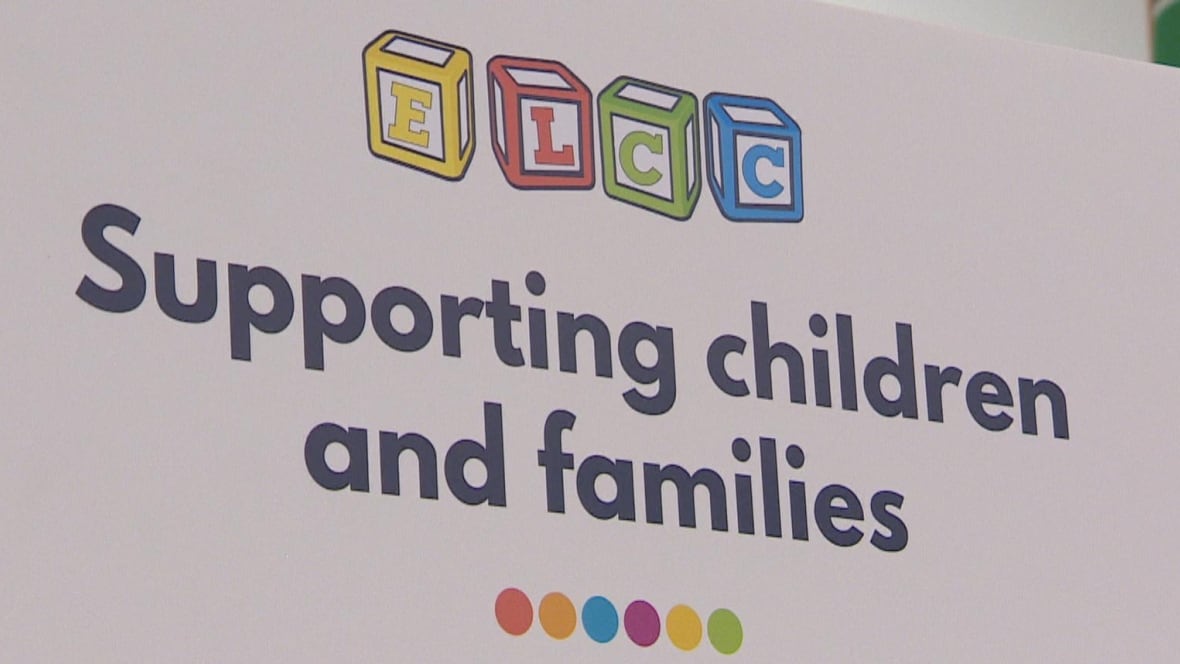Education
Saskatchewan Governments Invest $10.8 Million in Child-Care Spaces

The provincial and federal governments have joined forces to enhance child-care availability at post-secondary institutions in Saskatchewan. This initiative will allocate $10.8 million to establish 540 new child-care spaces. Of these, 450 spaces will be distributed across various campuses of Saskatchewan Polytechnic in Regina, Prince Albert, Moose Jaw, and Saskatoon, while 90 spaces will be created at Northlands College in La Ronge.
During the announcement on Wednesday, Saskatchewan Education Minister Everett Hindley emphasized the government’s commitment to expanding child-care options across the province. “We’re working very hard as the provincial government to make sure that wherever we can, we can expand and create more child-care spaces across this province,” he stated. The newly established facilities are designed not only to support students and staff but also to serve as practical training locations for those studying early childhood education.
The project is part of a broader strategy to improve child-care access in Saskatchewan. Thirty percent of the new spaces will specifically cater to “families facing barriers to access, including children with disabilities,” according to a joint announcement from both levels of government. Buckley Belanger, the Member of Parliament for Desnethé-Missinippi-Churchill River and Secretary of State for Rural Development, highlighted the importance of affordable and inclusive child care. “Every family should have access to high-quality, affordable and inclusive child care, no matter where they live,” he remarked.
Funding and Future Goals
This investment aligns with the Saskatchewan government’s objective to lower child-care costs in partnership with the federal government. The funding is sourced from the federal early learning and child care infrastructure fund, established as part of an agreement in 2021. This agreement aims to reduce the average cost of child care to $10 daily by 2026. As part of this initiative, the province has committed to increasing the number of licensed child-care spaces for children under six years old, targeting a coverage rate of 5.9 spaces for every 10 children by the same year.
To achieve this ambitious goal, the Saskatchewan government plans to create an additional 28,000 new spaces by 2026. Currently, over 23,000 spaces are either operational or in development. However, a recent study from the Canadian Centre for Policy Alternatives revealed that only 5,648 of those spaces are fully functional. Moreover, the report pointed out that more than half of Saskatchewan’s children live in “child-care deserts,” where fewer than three spaces are available for every ten children, a statistic that ranks highest in Canada.
The existing agreement between the provincial and federal governments is set to expire in March 2026. Unlike many other provinces, Saskatchewan has yet to renew this agreement. Minister Hindley noted that discussions with the federal government are ongoing. “We’re waiting for that opportunity to sit down with the federal government,” he stated, acknowledging the challenges of equitable funding distribution.
Despite the uncertainties, Belanger expressed optimism about reaching a new agreement. “These discussions will continue over the next several months,” he assured. “And I can assure you, by 2026, we’ll have a new agreement in place.”
The collaborative effort between the provincial and federal governments marks an important step forward in addressing the child-care needs of students and families in Saskatchewan, aiming to create a more supportive environment for education and early childhood development.
-

 Education3 months ago
Education3 months agoBrandon University’s Failed $5 Million Project Sparks Oversight Review
-

 Science4 months ago
Science4 months agoMicrosoft Confirms U.S. Law Overrules Canadian Data Sovereignty
-

 Lifestyle3 months ago
Lifestyle3 months agoWinnipeg Celebrates Culinary Creativity During Le Burger Week 2025
-

 Health4 months ago
Health4 months agoMontreal’s Groupe Marcelle Leads Canadian Cosmetic Industry Growth
-

 Science4 months ago
Science4 months agoTech Innovator Amandipp Singh Transforms Hiring for Disabled
-

 Technology4 months ago
Technology4 months agoDragon Ball: Sparking! Zero Launching on Switch and Switch 2 This November
-

 Education4 months ago
Education4 months agoRed River College Launches New Programs to Address Industry Needs
-

 Technology4 months ago
Technology4 months agoGoogle Pixel 10 Pro Fold Specs Unveiled Ahead of Launch
-

 Business3 months ago
Business3 months agoRocket Lab Reports Strong Q2 2025 Revenue Growth and Future Plans
-

 Technology2 months ago
Technology2 months agoDiscord Faces Serious Security Breach Affecting Millions
-

 Education4 months ago
Education4 months agoAlberta Teachers’ Strike: Potential Impacts on Students and Families
-

 Education3 months ago
Education3 months agoNew SĆIȺNEW̱ SṮEȽIṮḴEȽ Elementary Opens in Langford for 2025/2026 Year
-

 Science4 months ago
Science4 months agoChina’s Wukong Spacesuit Sets New Standard for AI in Space
-

 Business4 months ago
Business4 months agoBNA Brewing to Open New Bowling Alley in Downtown Penticton
-

 Business4 months ago
Business4 months agoNew Estimates Reveal ChatGPT-5 Energy Use Could Soar
-

 Technology4 months ago
Technology4 months agoWorld of Warcraft Players Buzz Over 19-Quest Bee Challenge
-

 Business4 months ago
Business4 months agoDawson City Residents Rally Around Buy Canadian Movement
-

 Technology2 months ago
Technology2 months agoHuawei MatePad 12X Redefines Tablet Experience for Professionals
-

 Technology4 months ago
Technology4 months agoFuture Entertainment Launches DDoD with Gameplay Trailer Showcase
-

 Top Stories3 months ago
Top Stories3 months agoBlue Jays Shift José Berríos to Bullpen Ahead of Playoffs
-

 Technology4 months ago
Technology4 months agoGlobal Launch of Ragnarok M: Classic Set for September 3, 2025
-

 Technology4 months ago
Technology4 months agoInnovative 140W GaN Travel Adapter Combines Power and Convenience
-

 Science4 months ago
Science4 months agoXi Labs Innovates with New AI Operating System Set for 2025 Launch
-

 Technology4 months ago
Technology4 months agoNew IDR01 Smart Ring Offers Advanced Sports Tracking for $169










